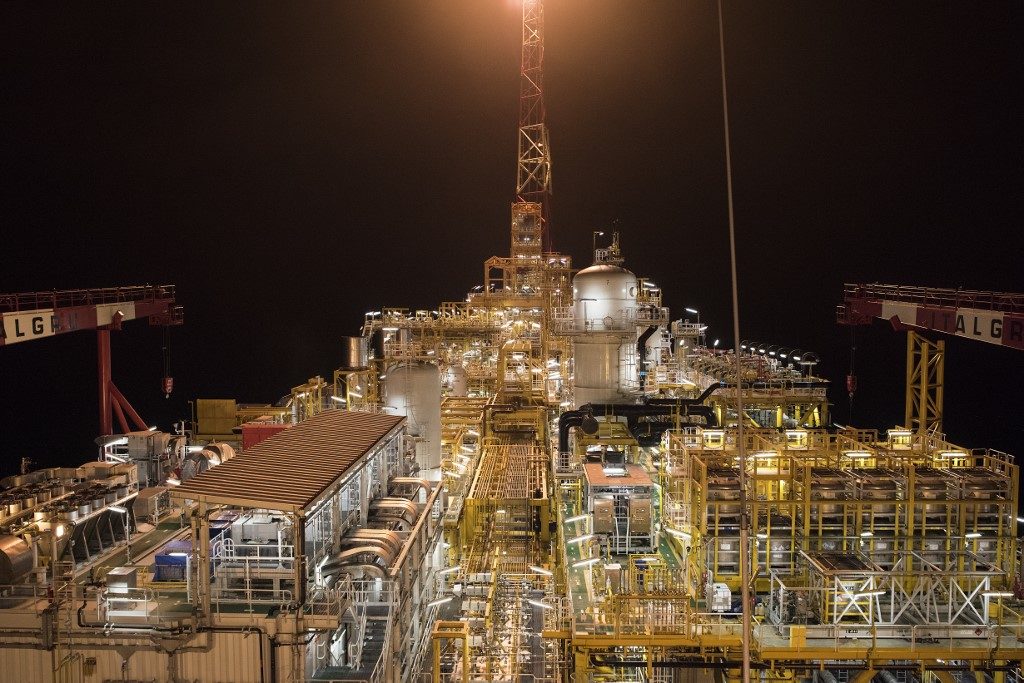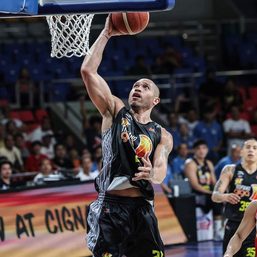SUMMARY
This is AI generated summarization, which may have errors. For context, always refer to the full article.

LIBREVILLE, Gabon – For years, African oil-exporting countries have vowed to wean themselves off crude – but for many, this uphill task may become mountainous after the coronavirus pandemic caused the energy market to collapse.
Here is a snapshot of how sub-Saharan oil exporters are faring:
Who has most to lose?
In a nutshell: Nigeria, Angola, and the Republic of Congo.
Nigeria accounts for around 40% of the roughly 4 million barrels of crude pumped daily in sub-Saharan Africa, while Angola is second with around 30%.
A global recession provoked by the coronavirus pandemic has gutted crude oil prices, which hovered at around $30 a barrel for Brent North Sea crude on Tuesday, May 12.
That is an increase from landmark lows reached in April, but it is still far from the $55 to $57 used by many African countries when they drafted their 2020 budgets.
Angola has been in recession since 2016. The country “has already been forced to use 1.3 billion euros ($1.4 billion) from its sovereign wealth fund and speed up a privatization program,” economist Carlos Rosado noted.
In Republic of Congo, the 3rd biggest producer, President Denis Sassou Nguesso has had to ask the International Monetary Fund (IMF) for $300 million to $500 million in emergency aid.
What about smaller producers?
The plight among small producers “is not very different than that of regional heavyweights,” said Siva Prasad, an analyst at Rystad Energy.
Gabon, Equatorial Guinea, and Chad produce up to 10 times less than Nigeria, but the first two are also members of the Organization of the Petroleum Exporting Countries that have agreed to cut output, and oil is almost as important to their smaller economies.
But there are notable political differences among the 3.
In Equatorial Guinea, “most of the population has never really benefited from oil reserves, and crisis or not, they will not see” much difference, said Benjamin Auge of the French Institute of International Relations (IFRI).
In Gabon, there are around 100,000 civil servants for a population of two million, and if the state tightens its belt, there will be “dire consequences,” he said.
Which countries have diversified?
When oil prices fell below $100 a barrel in 2014, producer countries promised to diversify their economies.
Today’s fresh pledges do not impress observers.
“It is a slogan that comes back with every oil crisis,” notes Jean Aime Brice Makosso of a Congolese non-governmental organization, the Justice and Peace Commission (CJP).
Chadian opposition figure Max Kemkoye dismissed such promises as “lacking political will and vision.”
International institutions like the IMF recommend that African leaders invest oil revenues, but Richard Bronze of Energy Aspects notes that they “have generally not been able to develop sovereign funds” like Middle Eastern countries and Norway.
One exception is Ghana, which “has a much more diversified economy than Nigeria because the oil sector was developed there later,” said NJ Ayuk, president of the African Energy Chamber in Johannesburg. Mining and cocoa already provided the state with revenue, he noted.
What’s the future for investment?
Even if prices rise, the future income of producer countries could be hit by reduced or delayed investment.
Prasad believes current projects are likely to be postponed to late 2021 or even 2022 rather than be carried out according to their present schedule.
While outright cancellations have not been announced to date, Shell has taken a hit in Nigeria, as have BP, Total, and ENI in Angola, and ENI again in Ghana, he said.
Olivier Jouny of Total Angola confirmed, “We have suspended our drilling operations, as have the other operators in Angola.” The decision was linked to health reasons, not the economic crisis, he said.
He noted that his group’s projects “were fairly robust with oil prices closer to $50” a barrel.
On the other hand, Eklavya Gupte of the S&P Global Platts agency said production costs in Nigeria ranged from $15 to $30 a barrel, down from almost $50 5 years ago.
“That proves oil companies have taken aggressive steps to reduce their costs,” he said. – Rappler.com
Add a comment
How does this make you feel?





There are no comments yet. Add your comment to start the conversation.